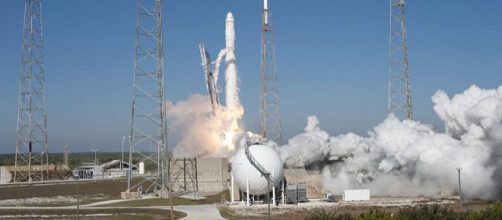The reusable rocket is the latest concept in space exploration that SpaceX is promoting. It has convinced NASA of the positive aspects of this, and the next resupply mission to the International Space Station in December will be through a Falcon 9 rocket that had been used in an earlier mission in June.
The Verge reports that this will be the first time NASA will rely on a used rocket for a space mission. However, the decision to continue with them in the future will be taken on a case by case basis.
The main argument in favor of this concept is cost, because the firm of Elon Musk has developed the necessary technology to ensure that the rocket returns back to earth safely.
The rocket is usually unfit after a single mission, but SpaceX has proved that rockets can be reused.
SpaceX is setting new standards
Elon Musk, CEO of SpaceX, has proved during 2017 that the Falcon 9 rockets can be reused to carry out space missions. In the current year, it undertook three missions of sending satellites into orbit using rockets that had already flown earlier.
The first such mission was in March for a Luxembourg-based communications company SES, to send its SES-10 satellite. In June it was the turn of satellite operator Bulgaria Sat. The third mission was in October for EchoStar and SES when they jointly sent up a hybrid satellite. Incidentally, the firm already has some similar missions on the slate, which only bolsters the level of confidence in these missions.
The SpaceX rockets return to Earth to land on designated drone ships, and the experience gained has made the firm confident. It feels that the rockets could be reused for multiple missions, and this could influence the decision of NASA to rely on a reused rocket for its next resupply mission to the ISS.
Tie-up between SpaceX and NASA
The drastic cut in its budgetary allocation was a situation that meant NASA would have to stop or curtail many of its planned projects. The first victim was the space shuttle that used to carry astronauts to and from the ISS. Russians took over the task with their Soyuz until such a time that NASA comes up with an alternative, and SpaceX emerged on the scene.
General John W.
“Jay” Raymond, head of US Air Force Space Command, has indicated that the military will accept previously flown Falcon 9 rockets in its programs because it would be cheaper.
Elon Musk is the man behind the mini revolution. He, with his innovative approach, is now a big name within the field of space exploration. He is a visionary that is also interested in the colonization of Mars.


